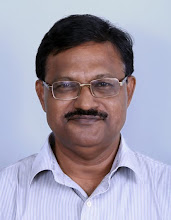Coconut farmers’ woes
Take a cue from the calls of Kerala Congress chairman P J Joseph who has been doing a yeoman’s service in highlighting the woes of the farmers and calling for comprehensive development of the State integrating the old practices with modern techniques. And take measures to ameliorate the woes of coconut farmers. It is not that a solution would elude the government provided a compendious effort would be made.
Joseph would vouchsafe it for a fact, by setting an example, that his politician’s work becomes wholesome only by doing social service. A model farmer himself, he has found innovative ideas for sustainable development and a better lot for the farmers. Organic farming, use of bio-manure, introducing high-yielding varieties of milch-animals, effective agricultural management, setting up high-speed road and rail networks, and all-round development of the state have been some of his spheres of activities.
He has established Gandhiji Study Centre, a training and research centre for agriculture and rural development. The Study Centre has already adopted Aralam panchayat in Kannur and Mullankolly panchayat in Wayanad district for infusing confidence in the farmers by evolving self-sustaining schemes.
Rubber and paddy cultivation and raising cash crops have also been among the thrust areas where he has been helping the farmers. The development potential in the tourism sector, expansion of the information technology sector, elimination of rural poverty and the like found favour with him for constant engagement.
It is no exaggeration to affirm that almost all innovative ideas for development, with particular reference to rural development and introduction of modern technology, have been pioneered by him by way of dissemination of ideas all these recent decades.
Years ago, he propounded a cleanliness drive for ensuring impurities-free Kerala. Effective waste-management efforts by setting up bio-gas plants at the level of local bodies was propounded by him. Now the government and voluntary agencies are trying to implement these schemes.
No area of people’s concern has escaped his attention, particularly since he has gained considerable experience in various echelons of life, including his contributions earlier as Minister for Education, Revenue, Registration, Public Works and Home.
Dwindling areas of paddy cultivation has made him inspire losing farmers, urging them to cultivate abandoned paddy-fields.
These days, he has been devising methods by which the coconut farmers, who are adversely hit by falling prices of coconuts, could be helped. There has been the practice of transporting only copra, desiccated coconut, to outside States. P J Joseph has been advocating another method. Coconuts should be dehusked and the farmers should be able to sell them by measures of weight.
Moreover, extraction of virgin coconut oil should be popularised. Virgin coconut oil would fetch better prices in the national and international markets.
There has been a hue and cry when palmolein was being shipped in through Kochi and other southern ports. Import duty for palmolein should be doubled to dissuade its easy dumping in Kerala, if not its ban, Joseph insists.
Now Nafed officials have assured MPs from Kerala that steps would be taken for procurement of coconuts. MPs have wanted procurement at the rate of Rs six per coconut. No time should be wasted in the name of wide-ranging discussions for arriving at fair price. Offers of subsidy and procurement getting prolonged, without actual implementation coupled with simultaneous import of palmolein, would break the backbone of the coconut farmers.
The State government had decided to procure raw coconuts through co-operative societies with a subsidy of 80 paise per nut. Action is yet to ensue. Meanwhile farmers are forced to sell out at the rate of three or three and a half rupees per nut.
The Central and State Governments should take heed to the practicable suggestions made by Joseph for the all-round development of the State.
Friday, November 30, 2007
Subscribe to:
Post Comments (Atom)


.jpg)



No comments:
Post a Comment